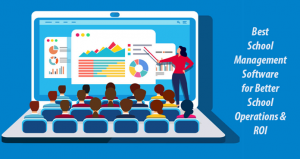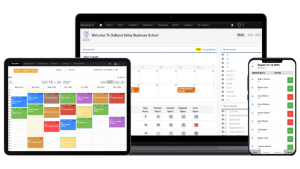Category: Education ERP
- Rating
School management software is a one-stop destination designed to digitize every operation of administration, management, teacher and faculty in the educational institute. There is many software of school are available in the market, among them NLET school software is the best.
- Rating
Vidyalaya is one of the best School Management Software that caters to all members of the school community, including Administrators, Teachers, Non-Teaching Staff, Students, and Parents. It is a customizable School ERP Software for schools, colleges, universities, training centers, and other educational institutes. It assists educational…
- Rating
Bonza Pro Technologies has expanded its expertise and excellence to numerous sectors. We are a Ready Partner for Odoo, enabling us to serve clients with fully integrated business software and solutions. Bonza Pro Technologies has helped various businesses to thrive on digital platforms with its…
- Rating
EduCloud is a next-generation SaaS LMS and ERP solution enabling schools and educational institutions to digitize their day-to-day academic and management operations. EduCloud is a unique cloud-based application making the life of teachers, parents, and students easier.
- Price
- From $7
- Rating
Experience the finest School Management Software. Streamline admin tasks, improve communication, automate fees, and enhance attendance tracking. Elevate your school’s performance with our tailored solution.
- Price
- from $5,000
- Rating
ShriConnect is the future of school management systems. ShriConnect streamline administrative processes, enhance the educational experience, and boost efficiency, allowing schools to focus on quality education. Our features include a 360 School Management, seamless integration, robust data security, cost savings, and real-time data access. Join…
- Price
- Request for pricing
- Rating
Orell campus ERP is an all-inclusive world-class ERP Suite specifically designed to simplify the processes for schools and other educational institutions. The education industry has been utilizing technology to improve teaching efficacy, tracking, and maintenance. But, an efficient centralized system like ERP would help in…
- Price
- Request For Pricing
- Rating
Extramarks is an online learning platform focused on the pre-school, K-12, higher studies and Test Prep segments through the skilful combination of pedagogy and technology to learn anywhere, anytime. We ensure concept learning through interactive video modules on the Learning App. These modules are prepared…
- Price
- Request for Pricing
- Rating
Banibro is a leading Odoo company based in Chennai, dedicated to helping businesses thrive through innovative Odoo solutions. With a team of skilled developers and consultants, Banibro offers comprehensive services tailored to streamline business processes, enhance productivity, and optimize efficiency. From seamless ERP implementation to…
- Price
- Request For Pricing
- Rating
SkoolShine is a secure cloud-based school administration software for the school administrators, staff and teachers to manage student admissions all the way to student exit with document printing. The dashboard is used by the administrators to send out unlimited study materials to the parents not…
- Price
- Request For Pricing











